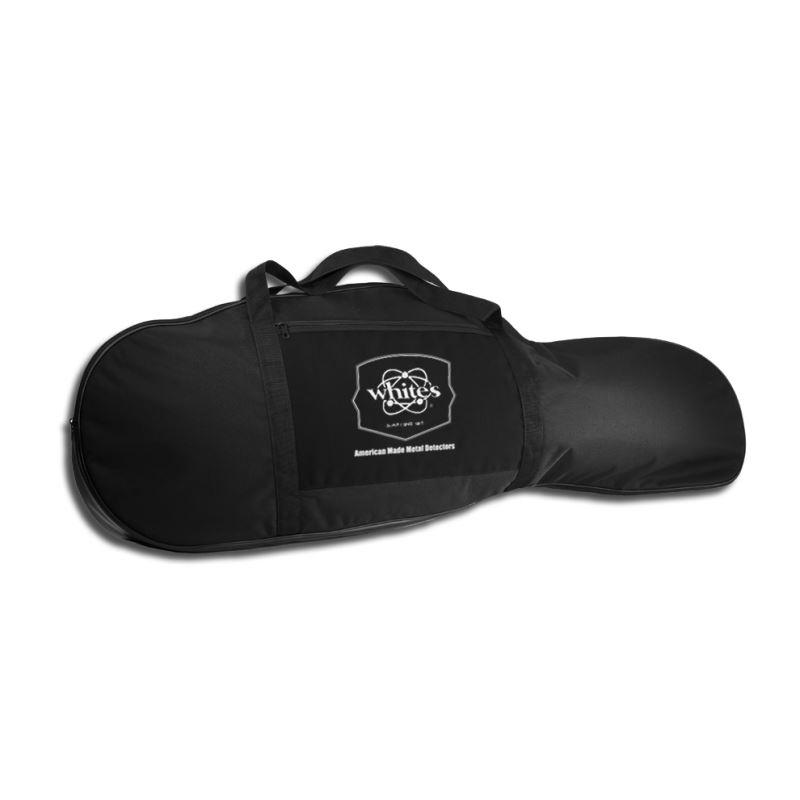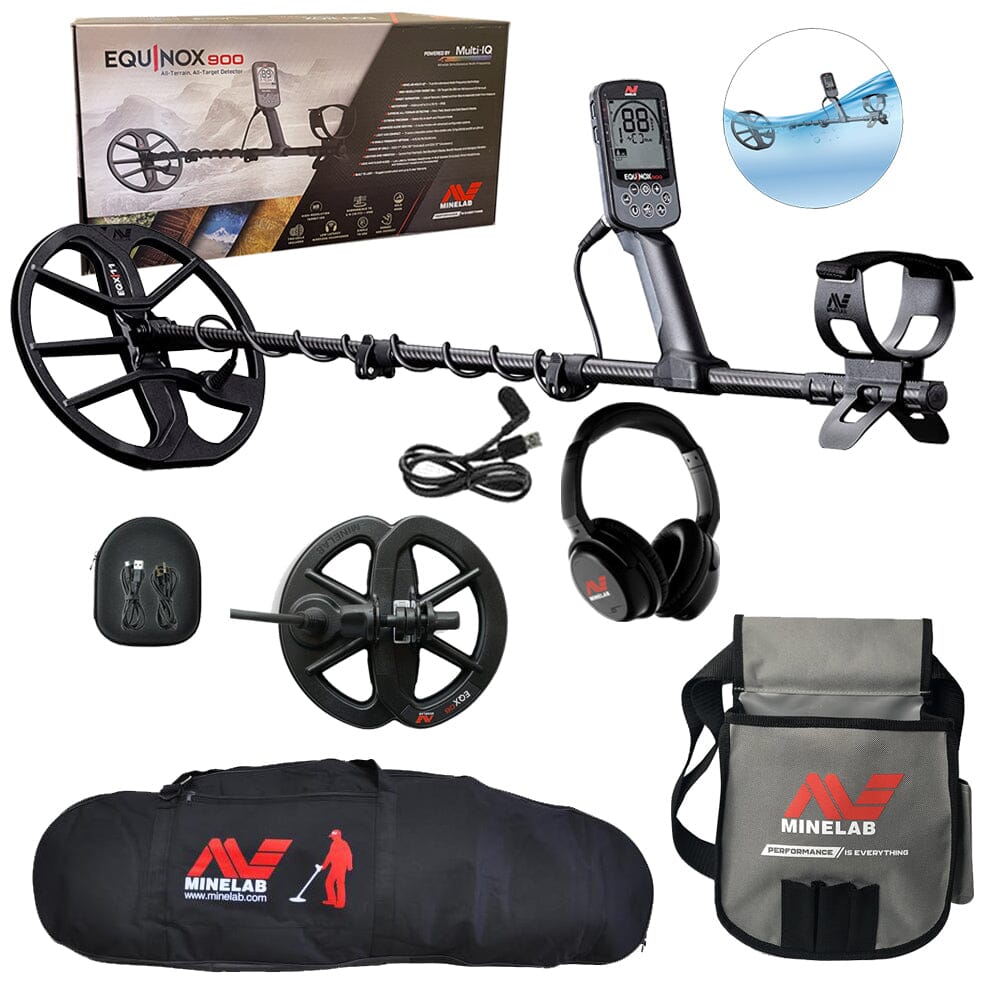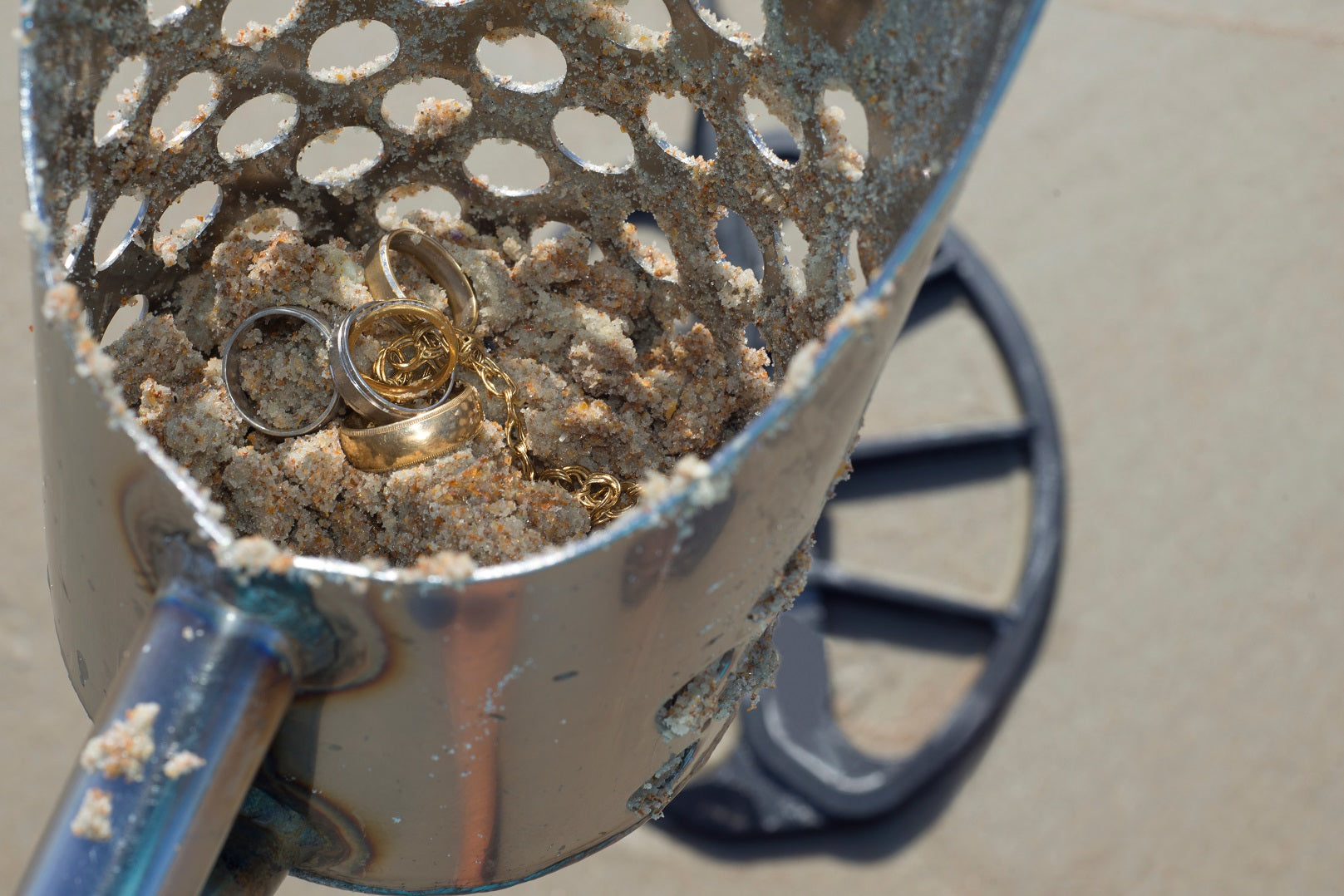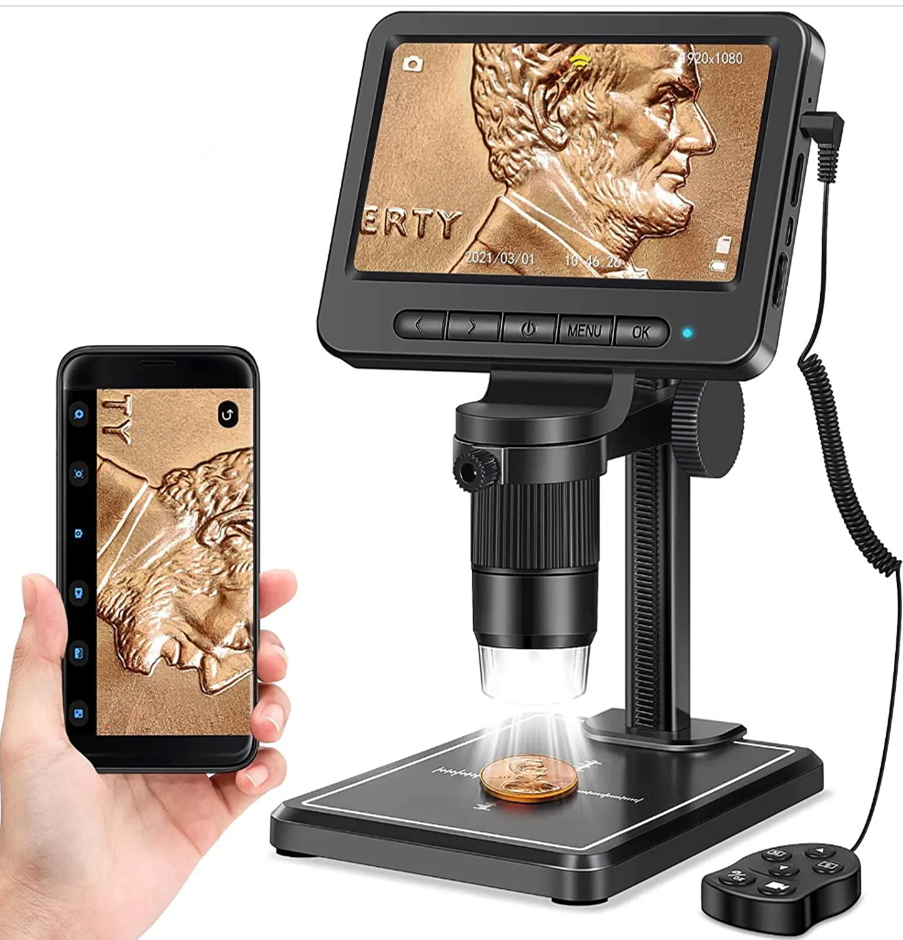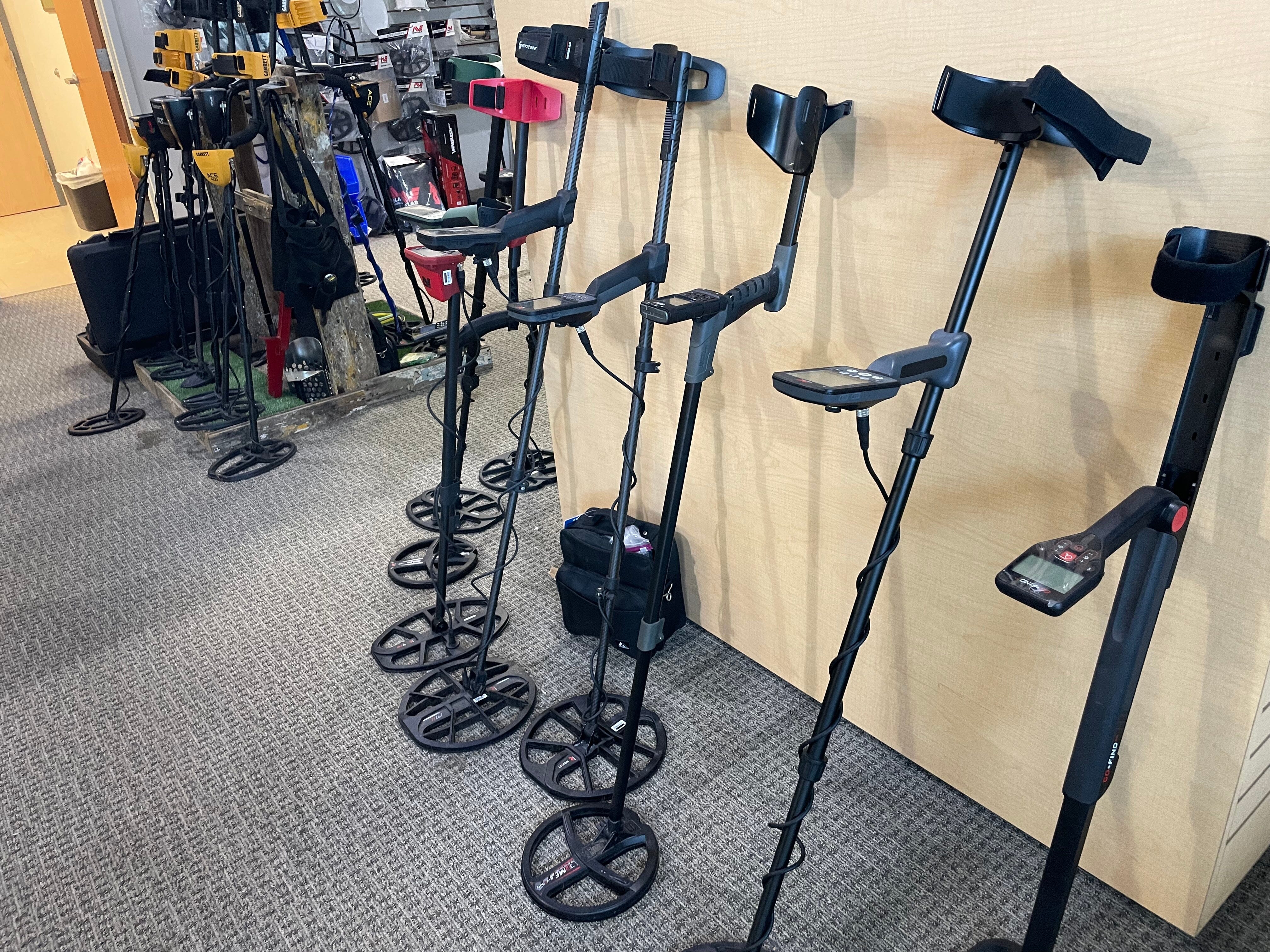Those items were:
- Hand Held Metal Detector
- Pinpointer
- Digging Tool
Although there is some flexibility with these items in terms of brands, features, etc., most metal detectorists will agree these three items are necessary tools to find buried metal effectively. From there, you can add countless tools to your repertoire. For some of these items, each one adds another element of efficiency. The more quality the gear, the more effective you will be at recovering more treasure and less trash.
In the spirit of not spending too much on unnecessary gear, I decided to make this a three part series. In this second part I would like to list and validate what I feel are the next 5 pieces of metal detecting equipment a treasure hunter should consider purchasing. These items will help make your metal detecting experience not only more productive, but also more enjoyable.
5 Very Useful Metal Detecting Tools (that aren’t totally necessary)
Treasure Pouches – It sounds like an obvious thing and any pouch will work. But, some manufacturers have come out with products that interact. My favorite is the Garrett Treasure Pouch. It is a very simple design but provides the two things necessary in a pouch. First, it has a large compartment which can be used to hold the trash you dig up in the field. It also has a small separate compartment with a zipper for valuables. Learn from my mistakes, this is crucial!
I always warn people of storing trash and treasure together. Do it long enough and you WILL lose one of our valueables out in the field….and nothing dampens a detecting trip like backtracking to try to find something you already found once!
One additional feature of the Garrett Treasure Pouch is that it has loops similar to that of webbing on a ruck sack. It is perfectly situated and fitted for the holster that comes stock with the Garrett Pro Pointer.
Protective Covers & Cases – Although modern metal detectors have come a long way in their design and durability, one can never be too careful with expensive electronic tools. Your metal detector is a tool. If you take care of your tools they will be in good working condition when you call upon them for assistance in completing a job.
Coil Covers protect one of the most valuable parts of the metal detector…the coil. This is one of the things I always recommend a person buy…especially if they intend on possibly upgrading down the road. The first thing we will look at is the condition of the coil. They tend to get banged around a lot and can chip and wear out over time. For around $12 bucks this is a no brainer.
Control Housing Covers protect the “brains” of the detector. They protect from dust, scratches, and normal wear and tear. And, unless you are using a waterproof metal detector like the Garrett AT Pro, you will need one if you are detecting in the rain.
Finally a carrying bag is a good way to protect your overall investment. There are quite a few inexpensive bags that can be used for your metal detector. Honestly it is hard to beat a soft side bag similar to what you would carry an assault rifle in. Fortunately, we have you covered with our quality, soft sided, metal detector bag that is slightly less likely to be mistaken for a gun…although the digital camo still may cause confusion at the airport.
Long Handled Sand Scoops Make Beach Hunting a Breeze
More Digging & Recovery Tools – The list of treasure recovery tools is almost endless. I mentioned a few types in the previous post but there are so many options, it could have been a blog post on its own. Picks, shovels, probes, and crevicing tools are common tools. Then there are the not so common. When you are hunting on a beach or in water for instance, the best way to recover a target may be to use a sand scoop. There are a variety of sand scoops and they come in a variety of types. There are long handled sand scoops, short galvanized sand scoops, and there are plastic scoops which makes determining if you removed the target a bit easier. Terrain is an important part of choosing your recovery tool. Hard rocky soil may warrant a good heavy pick to chip through the tough soil.

The giant 20″ x 40″ Coiltek Coil for finding deep targets.
Coil Varieties –Different detectorists have different coil preferences due to the difference of potential depth, change in kHz, size of detection field, etc. Many metal detectors have interchangeable coils. This allows you to use, for instance, a coil like the sniper coil in areas where space is tight (for example gold prospecting). Additionally you can purchase larger coils which will allow for increased detection depth. Really, it is all personal preference and based largely on your hunt site. I recommend experimenting with different coils in each place you have an opportunity to hunt over time. You may very well find targets you had passed over in the past. Coiltek is an aftermarket brand of metal detectors that makes coils for a variety of different brands. They even make a 40″ x 20″ elliptical (shown left)coil made for finding deep patches of gold that were previously out of reach of the average coil.

Standard Gold Test Kit
Precious Metal Testing Kits – After you have dug up nearly every type of metal in existence you will get really good at determining what metal they are. Lead for instance oxidizes as it ages and becomes almost white. It is very heavy and easy for the trained eye to identify. Other metals like silver can be a little tricky. Especially if it is tarnished. Certain stainless items can sometimes be mistaken for silver. Additionally, if you find a piece of gold and want to see how much it is worth, you will need to first know how its karat content (assuming it’s not stamped). You can identify potentially precious metals by using a relatively simple acid test (and yes, this is where the term “acid test” comes from). There are tests available to test for varying levels of gold content, silver, platinum, and even nickel (for testing possible meteorites).
Stay tuned to our blog for upcoming articles and episodes by following us on your favorite social media outlet to stay informed of releases:
YouTube: HighPlainsProspectors
Facebook: @highplainspropsectors
Instagram: #highplainsprospectors
Twitter: @HProspectors

